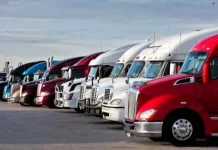The debate on animal welfare, especially within intensive farming, is more actual than ever and is often at the center of real confrontations and discussions. The idea is that, especially intensive, farming and animal welfare are incompatible. But this is not completely true.
In order to evaluate the situation, we have to consider the 5 freedoms on which the concept of animal welfare is based and develops:
- Freedom from hunger, thirst and malnutrition,
- Freedom to have comfort and shelter,
- Freedom from injury and disease,
- Freedom to express the normal animal behaviors,
- Freedom from fear and stress.
The importance of animal welfare in farms can also be seen in economic terms. The achievement of animal welfare is one of the tools for achieving entrepreneurial welfare and environmental sustainability. And there are a lot of technological innovations that can promote animal welfare. One of these is the crush machine mod, for example. For instance, mashed cereal has positive effects on digestion. The fundamental function of this crush machine is to break the kernels (outer skin) of all cereals, allowing the gastric juices of the ruminant to eat this food and slowly transform it into proteins therefore obtaining the maximum of nutrients. By feeding animals, at least a portion of the daily diet, with mashed cereals, they exhibit a greater average weight gain as well as an increase in milk production.
In the end, animal welfare is more profitable than technological investment. In particular, it is important to accurately and carefully follow the growth of heifers, because what is not done in the first six months of life, can no longer be recovered. Even the quality of the milk is the result of a balanced system based on prevention- Prevention that does not only concern the cows, but also the plants, which must be sanitized and subjected to regular maintenance, the environment in which the animals live, which must be clean and adequately ventilated, as well as the way the animals eat – and a crush machine mod is very useful in this sense.
All companies and farmers should invest a part of their budget and investments for animal welfare. Dairy farming, in particular, is one of the most complex, risky, and capital intensive sectors of agriculture. A herd of even a few dozen animals is an ecosystem that requires constant attention and work. Focusing on animal welfare, in the end, is without doubts something that can improve the quality of the final product – milk, meat, etc. – and allow for better price performance, meaning an economical gain for the farmer.




















